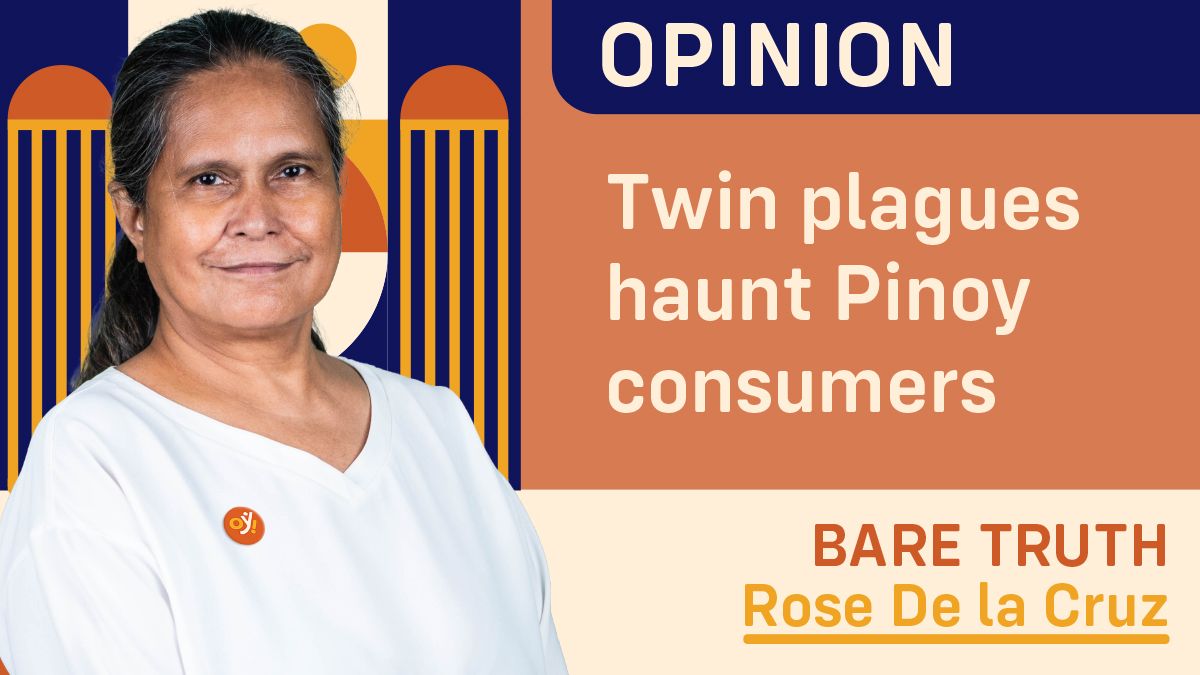A twin plague– at the extreme end of each other but bound by a common desire for the right kind of nutritional food– stalks the Filipino consumers. On the one end is the problem of obesity (the result of indulging in the wrong kind of foods) and on the other extreme is the undeniable malnutrition especially of the youth and those in the poverty level (whose incomes are inadequate to access a proper diet).
Malnutrition remains a gargantuan challenge for the country as only 1.8 percent of Filipinos have access to proper nutrition, a study of the Nutrition Policy and Planning Division of the National Nutrition Council revealed.
Kristian Jebsen Bandong, Nutrition Officer II of the NNC Nutrition Policy and Planning Division said the Bangsamoro Autonomous Region Muslim Mindanao (BARMM), Region 7 and Region 8 have the highest rate of malnutrition in the country, a report published by Business Mirror said..
“We have to develop and protect the capabilities of individuals and families, especially those who are coming from the marginalized sector,” said Bandong during the recently concluded educational session, “Responsible Marketing to Children” held in Armstrong Center, Makati City.
The problem has been exacerbated by the availability and heavy promotion of cheaper, unhealthy foods and snacks.
He stressed the urgency of addressing the vulnerabilities and protecting the purchasing power of Filipino families to ensure that they avail of a healthy and affordable nutritional diet.
Bandong is equally alarmed by the rising obesity rate among Filipino children across all social classes. “Obesity is no longer a disease of the affluent,“ he emphasized.
He emphasized that the government cannot do it alone as it needs the expertise, resources and capabilities of the private sector to combat malnutrition among children.
“We need concerted action, government agencies such as the Department of Trade and Industry and the Department of Agriculture to work together with the private sector for a comprehensive roadmap to tackle malnutrition,” he said.
Bandong also shared the government’s initiatives on regulating advertising and marketing, including developing the Philippine Nutrient Profile Model which they plan to use for several purposes such as regulating treats and alcoholic beverage marketing and implementing front-of-pack nutrient-specific warning labels
“We should all be advocates for our children, then we can be advocates for the products we are trying to sell,” said Center for Peace’s Dr. Gail Reyes Galang.
She also suggested seeking insights from parents or child experts to ensure ethical marketing practices aimed at children.
Mondelēz International explored the ethical imperatives in today’s market, emphasizing the delicate balance between business objectives and safeguarding family and children’s well-being.
Aleli Arcilla, Mondelēz International’s Managing Director in the Philippines also revealed the company’s industry-leading efforts and advocacy for well-being, Mindful Snacking.
“We believe it is the gatekeepers, the parents or the guardians, who should make the decision on what food their children should consume,” Arcilla emphasized.
“To grow our business means growing it the right way by being responsible in our marketing and encouraging other companies to do the same,” she emphasized.
Miko David, president of David & Golyat and vice president for external affairs at the Ad Standards Council, discussed how the organization regulates marketing to children through its regulatory guidelines.
The esteemed experts also opened up to the possibility of reviving and improving the Philippines Responsible Advertising to Children pledge, which was signed in 2014. This pledge aims to formalize the minimum standards for advertising to children, to protect their wellbeing. Mondelēz International is one of the companies that signed this pledge.
“Through this discussion, we are advancing significantly toward our goal. By fostering collaboration in designing marketing strategies for families, we envision a world where businesses thrive alongside the well-being of our consumers,” said Arcilla.
Hosted by adobo magazine and joined by the NNCl, Philippine Association of National Advertisers (PANA), the Ad Standards Council (ASC), Center for Peace, and KMC Solutions, the session sought to spark discourse on ethical marketing to children and explore strategies for crafting age-appropriate and responsible marketing campaigns that resonate with families while safeguarding their best interests and wellbeing, Business Mirror reported.
My take
A lot of factors surround the problems of obesity and malnutrition, foremost of which is the changing lifestyles of people– they are more sedentary and spend more time in different media (traditional and mainstream, social media and games which are bombarded with ads of junk foods) that sound like these junks are the best options they can avail of in their dormant lives.
Malnutrition and obesity are no longer just caused by the inability to access nutritional food but because of the lack of time or laziness of consumers to reach for healthy nutritional food.
Also the combo deals and unli offers of food marketers impart the message that consumers enjoy value for their money if they access such big chunks of junk foods or an excess of the same kind of food in one sitting.
Obesity and malnutrition is not exclusive to the Philippines. These twin plagues haunt the entire world and little progress is being made to correct these issues.
#WeTakeAStand #OpinYon #OpinYonColumn #ColumnbyRoseDeLaCruz #BareTruth
